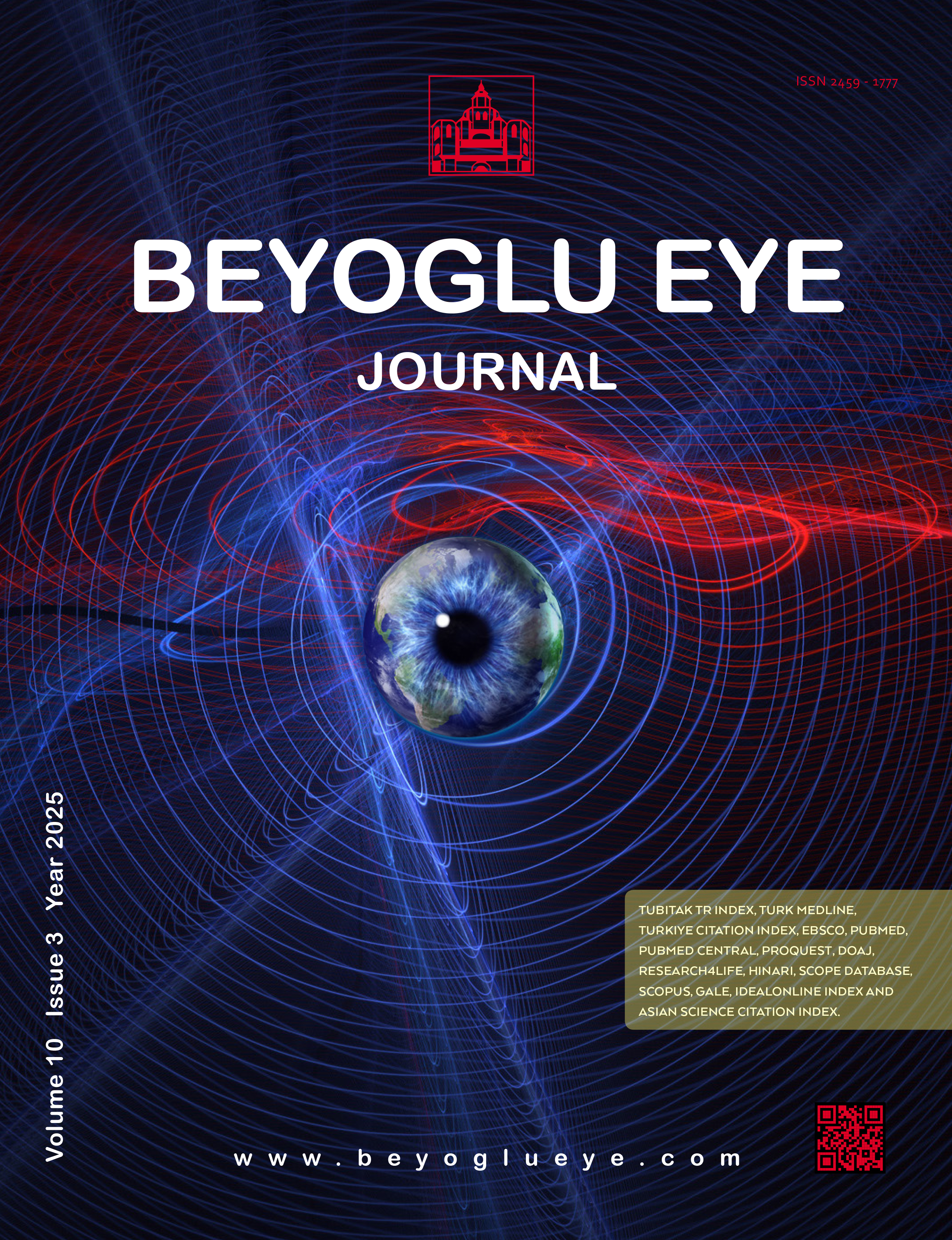
Brown Syndrome: Features and Long-term Results of Management
Ahmet Alperen Koc1, Ebru Demet Aygit2, Aslı Inal2, Bulut Ocak2, Ceren Gurez2, Sibel Ahmet3, Bugra Duman4, Birsen Gokyigit41Department of Ophthalmology, Istanbul Aydın University Medical Park Florya Hospital, Istanbul, Turkey2Department of Ophthalmology, Istanbul Beyoglu Goz Training and Research Hospital, Istanbul, Turkey
3Department of Ophthalmology, Istanbul Catalca State Hospital, Istanbul, Turkey
4Department of Ophthalmology, Istanbul Basaksehir Cam ve Sakura City Hospital, Istanbul, Turkey
INTRODUCTION: The goal of this study was to evaluate surgical techniques and outcomes in patients with Browns syndrome.
METHODS: A retrospective review was conducted of patients who underwent surgery of the superior oblique (SO) muscle between 2003 and 2011 at a referral center.
RESULTS: In all, 190 patients (111 female and 79 male) with an age range of 4-50 years were included in the study. The right eye was affected in 98 patients, and the left eye in 92 patients. Abnormal head posture (AHP), ocular movement (OM), and hypotropia were assessed. The greatest improvement of AHP was seen following an SO temporal tenotomy (91%). Patients with a -4 limitation achieved full OM after a SO temporal tenotomy.
DISCUSSION AND CONCLUSION: Temporal tenotomy provided the best improvement in limitation of elevation in adduction.
Keywords: Abnormal head posture, Brown syndrome, limitation of elevation in adduction, ocular movements
Manuscript Language: English









